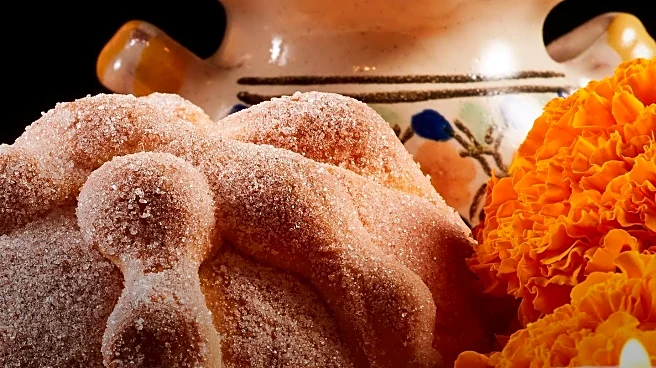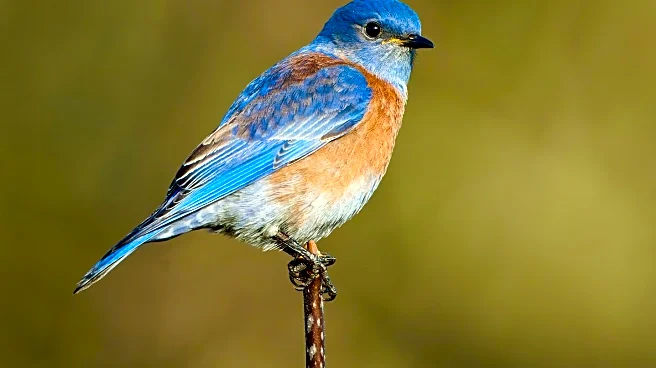What's Happening?
Día de los Muertos, traditionally a Mexican holiday to honor deceased family members and friends, is increasingly incorporating pets into its celebrations in the United States. Individuals like Leila Palacios
and Noemi Gomez are creating ofrendas, or altars, to remember their beloved pets who have passed away. Palacios, for instance, has set up an altar in her California home to honor her cat Kai, who died of cancer. Similarly, Gomez has created an ofrenda in her Chicago apartment for her corgi Paco, who passed away due to a spinal condition. These altars typically feature photos, cherished objects, and favorite treats of the pets, alongside traditional elements like marigolds and candles. The trend reflects a growing recognition of pets as integral family members, deserving of remembrance alongside human loved ones.
Why It's Important?
The inclusion of pets in Día de los Muertos celebrations highlights the evolving nature of cultural traditions and the deep emotional bonds people form with their pets. This shift signifies a broader acceptance of pets as family members, influencing how grief and remembrance are approached in American society. The trend may also impact industries related to pet care and memorial services, as demand for products and services catering to pet memorials could increase. Additionally, this development underscores the blending of cultural practices, as U.S. communities adopt and adapt traditions from diverse backgrounds, fostering greater cultural understanding and integration.
What's Next?
As the tradition of honoring pets during Día de los Muertos gains popularity, it is likely that more communities and organizations will create public spaces for pet ofrendas. Zoos, animal shelters, and community centers may host events to facilitate collective remembrance, providing opportunities for individuals to share their experiences and celebrate the lives of their pets. This could lead to the establishment of new cultural norms around pet memorialization, influencing how future generations perceive and celebrate the holiday. Additionally, businesses may respond by offering specialized products and services tailored to pet ofrendas, further integrating this practice into mainstream culture.
Beyond the Headlines
The growing trend of including pets in Día de los Muertos celebrations may prompt discussions about the ethical treatment of animals and their roles in human lives. As pets are increasingly recognized as family members, there may be greater advocacy for animal rights and welfare, influencing public policy and societal attitudes. This cultural shift could also lead to more inclusive practices in other areas, such as healthcare and housing, where the needs of pet owners are considered alongside traditional family structures.









